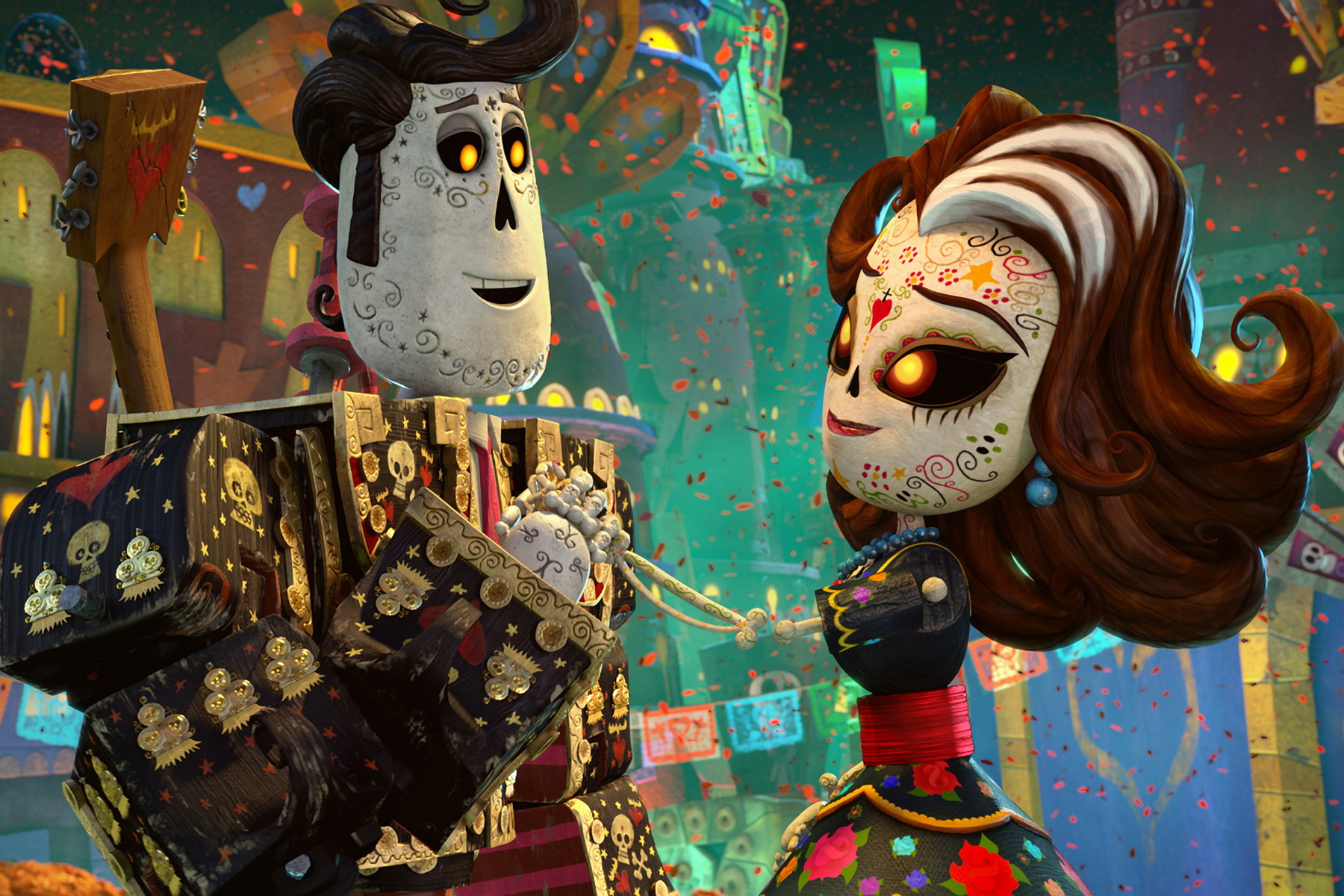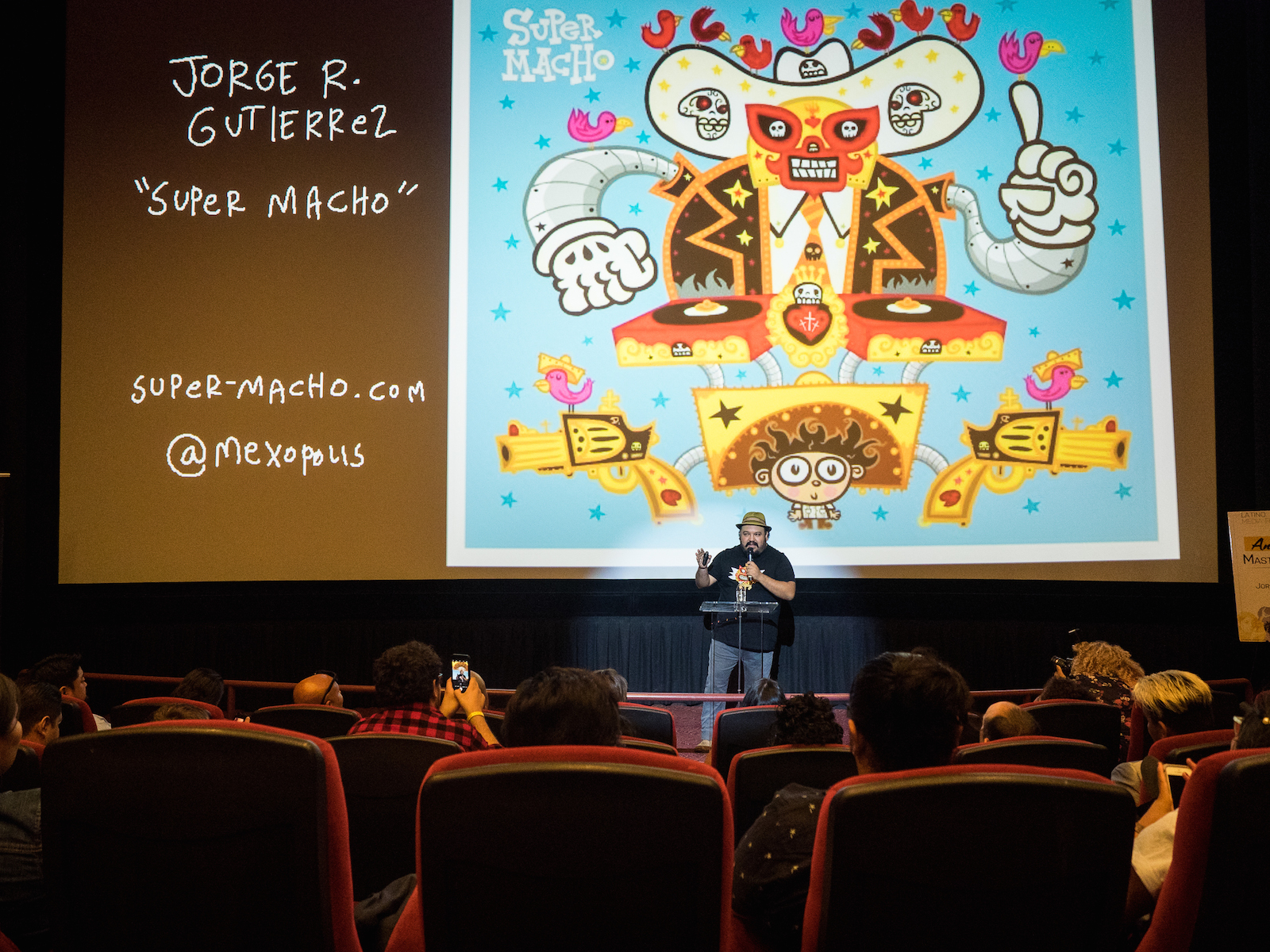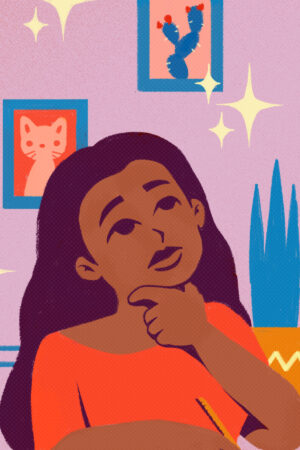Mexican-born animation wizard Jorge Gutierrez has forged a career in film and television by bringing Latino stories into the mainstream. However, if he ever wanted to dabble in standup comedy, he could totally make a crowd cry tears of laughter. The director behind The Book of Life and shows like the Emmy-winning El Tigre recently joined efforts with the National Association of Latino Independent Producers (NALIP) for an Animation Master Class at the Latino Media Fest.
As jolly as usual, Gutierrez walked attendees through his eventful life, failures and all: from his young days in Tijuana, to getting into CalArts, and even being diagnosed with autism as an adult. In his sincere and emotional presentation, the artist highlighted all the shows he created alongside his wife, Sandra Equihua, that were cancelled for one reason or another. Each disappointment only increased his perseverance to chase his dream. His passion for Mexican iconography and traditions shines through his work.
His latest project, a VR short titled Son of Jaguar, was screened during the Media Fest. Like with all of his work, family – in particular a father-son relationship – is the focus of his bite-size adventure. Take a look at some highlights from this session with a pioneer of Latino animation.
On Being a Super Macho
When I was 6-years-old, my grandfather, who was a big influence on me, sat me down and poured two shots of tequila and he said, “Jorge, I’m going to teach you the meaning of life.” He goes, “Jorgito, there are two types of men in this world. There are machos and there are super machos.” I said, “What’s the difference grandpa?” And he goes, “Machos fight everybody. Super machos are so macho they fight no one. Machos cheat on their girlfriend and their wives. Super Machos are loyal to death.” I was like, “Wow, grandpa, are you are you a super macho?” He says, “No, but you can be and that’s what you should aspire to.” He told me, ”The easy path in life, that’s the macho path. The hard path is the super macho path. “
On Growing Up in Tijuana
I got to experience Mexico and the US, which makes border people, and border artists specifically, very unique in that we’re kind of the bridge between them.
On Learning CG Animation in Order to Avoid Getting Deported
Even though I didn’t really like it, I said, “I’ve got to teach myself CG Animation,” because as a foreigner, you get one year to find a job or you get deported. While my friends are like, “Do I want to work at Pixar or do I want to work at Warner Brothers,” I was like, “I can’t get deported. I’m going to be the only taco stand guy in Tijuana who knows how to animate.”
On Fighting to Tell His Own Stories
A producer at Nickelodeon took me aside and said, “I’m not going to hire you, but I’m going to give you one piece of advice. The only person who’s going to hire you to do this type of stuff is you, so pitch your own stuff.” And that’s what I did.

On El Macho Being About His Personal Journey in Hollywood
Everything is about my experiences, so for me, I was that baby. I got dropped in Hollywood. The mask is my culture, and I refused to take it off. No one would hire me. I grew up, and now I fight for the next generation. All of my stories, I try to make them about experiences that I’ve had.
On the Success of El Tigre Wherever Trump Didn’t Win
The show did really well in Latin America and corrupt countries in Europe, like Russia. In the US, it did really good wherever Donald Trump didn’t win. It didn’t do so good in the middle. We would get hate mail. I still can’t believe people took the time to write in, “Why do I want to see a show about my gardener?” It was crazy. I couldn’t have predicted what’s happening now back then.
On Looking Forward to Setbacks
Every cancellation, every project that we’ve done that doesn’t go through, I take it as, “I’m a jaguar, and it’s another spot, and as long as I keep getting spots, eventually I’ll be a panther, so I need to get more spots on me.” If El Tigre hadn’t been canceled, The Book of Life would have never happened. Every good thing that’s ever happened to us was thanks to something bad happening before, so now I look forward to the bad stuff, because I know something good is coming after.
On How Talking Shit Got Him Jobs
A lot of the time, I get work because I talk shit about things. For example, my wife and I did a Microsoft commercial, and that’s because at Siggraph, they asked me why I don’t use Macs. I said, “Because I think Macs are overpriced, and artists are the people who need them the most, and you’re punishing the artists. Macs are given for free to art achools so artists get hooked on them, like drugs, and then when they graduate they can’t afford them.” Because of that, Microsoft gave us a Microsoft commercial. With Son of Jaguar, I was asked on a panel, “What do you think about VR?” and I was like, “I don’t know, I think it’s bullshit.” So Google approached me and said, “We want you to eat your words. We’re going to hire you to do a VR short.” The lesson is, talk shit about stuff. Now I’m like, “I hate Ferraris!”

On VR Glasses Being Similar to a Luchador’s Mask
There’s a saying I love, “Give a man a mask, and he will show you the truth,” by Oscar Wilde. I think he was talking about Mexican wrestling, but he didn’t know it, but there’s this idea that when you put a mask on, you can become someone else, and you can tell the truth, because there’s no repercussions. When I would see people put on VR glasses, to me it was like becoming someone else, like a luchador when they put on their mask. I also heard when people were in VR, they would say, “I felt like I was a ghost, because I couldn’t interact, “I said, “Well, I’m going to do my short about a dead wrestler who goes to visit his family.”
On How Latino Creators Need to Support Latino Talent
When I got started, there were not a lot of Latino voice actors and Latino writers in animation, and that was really hard because they were competing with people who had been doing it for so long. As a show creator, you would go, “What do I do? Do I go with a new voice that’s really green, that’s going to take a long time to nurture?” I was a first time showrunner, “Or do I go with an experienced white guy that can do it with his eyes closed?”
It was really tough to make those decisions. You go, “This might hurt the show, but it’s going to help the community, and if it succeeds, it will help the show even more.” Those were tough choices. Same thing with the actors, “Do we get someone who has never done animation, and spend that extra effort, but now we’ll have an authentic Latino actor or actress, or do we go with someone who’s doing five shows a week and can do a Latino accent, but is not from the culture.”
Early on, I was put in that position, and it was really tough, because no one wants to hear that this is going to be harder, but maybe better. They want to hear what’s going to be better and cheaper. It comes down to money, and taking those opportunities. And as a first time show creator, my fear was, “I’m going to be fired, so I want to make sure that I take risks that are worth it in a way that helps people like me, but at the same time, not just take crazy risks to take crazy risks.” It was a balance.
I think now, it’s different. Now, talent is flourishing behind the camera and behind stories. I’m seeing shows where now there are actual Latin creators behind a Latin show. Before it was not usually the case. The people who created Dora the Explorer were not Latino. The people behind Mucha Lucha were not Latino. We’re in a different time now. I think the audience is now calling networks and calling studios on that stuff. We’re living in an era where, thanks to social media, when stuff like this happens, the audience can immediately say, “Bullshit, why are you doing this?” whereas 20 years ago, it was a one-way street. Whatever they fed us, that’s all we had, so I think we’re in a good time.







